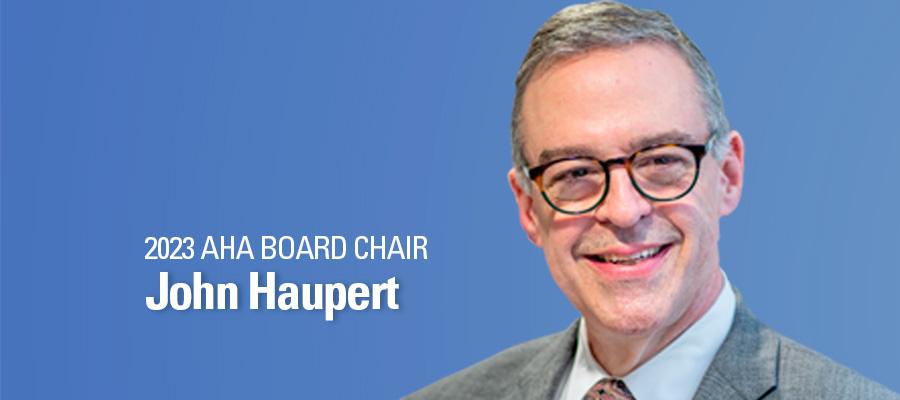Chair File: Delivering Safe, Reliable Patient Care This Week and Every Week

March 12–18 is Patient Safety Awareness Week. While patient safety is a priority every day of the year for teams working at our nation’s hospitals and health systems, it’s important to acknowledge this event every year and advance discussions that inspire action to continue to improve patient safety.
Patient safety is a continuous journey. While health care organizations have made progress building a culture of safety, we must never stop working to ensure all patients receive safe, quality care.
The AHA offers many resources and training to support hospital and health system teams in this work.
- AHA Team Training strives “to transform teams of experts into expert teams.” It features Team Strategies and Tools to Enhance Performance and Patient Safety, or TeamSTEPPS, which is designed to help health care professionals improve safety and quality through effective communication and teamwork skills. AHA offers a diverse TeamSTEPPS curriculum with monthly webinars, courses and workshops, and customized coaching and consulting.
- Project Firstline, a national collaborative with the Centers for Disease Control and Prevention, provides tools and resources for hospitals to engage all stakeholders — from bedside nurses to facility engineers to environmental services team members — to improve infection prevention and control. Hospital and health system teams can access assessment tools, checklists, infection control training videos and other resources.
- The AHA Living Learning Network is a virtual community of more than 400 hospital and health care leaders focused on sharing knowledge and concerns, expanding perspectives and problem-solving together. Launched during the pandemic, the LLN addresses a range of health care topics including patient safety, quality improvement and health equity.
Visit AHA’s Infection Control and Prevention webpage for more patient safety resources and information, including inspiring stories from health care organizations that are reducing HAIs during and post pandemic.
At Grady, the health system I lead, we are committed to providing safe and quality care. Our “True North” states: Ensure Safety, Anticipate Needs and Exceed Expectations. To achieve our “True North,” we need to establish a culture of excellence, and employing high-reliability principles are foundational to this. To live up to that pledge, we are starting our journey to become a high-reliability organization. A HRO succeeds in avoiding catastrophes in an environment where normal accidents occur due to risk factors and complexity. Air traffic control, airlines and nuclear power plants are examples of HROs. Within a HRO culture, everyone is acutely aware that even small failures in safety protocols or processes can lead to catastrophic outcomes. Creating an environment that supports a HRO mindset is essential to achieving Grady’s quality and safety goals.
This week or any week of the year, I encourage you to share your hospital’s safety and quality improvement stories with your communities. Let patients and families know what your hospital or health system team is doing to deliver safe, reliable care.

